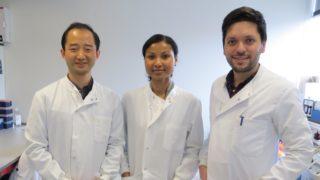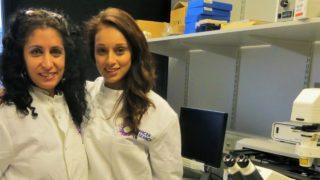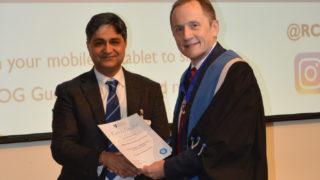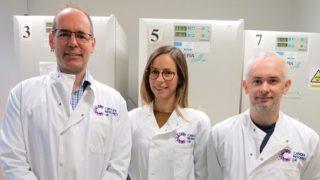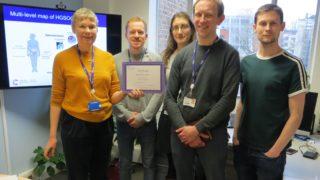Category: General News
Search News
Categories
Archives
Determining the mechanisms of response and resistance to treatment in bladder cancer
29th March 2018
A worldwide collaboration involving BCI’s Prof Thomas Powles, Centre for Experimental Cancer Medicine, has revealed mechanisms involved in the development of response and resistance to an immune checkpoint inhibitor in metastatic urothelial cancer. The findings may highlight ways to improve the efficacy of this treatment in the hope of achieving long-term remission for patients.
Read moreFollicular lymphoma marked by spatial tumour heterogeneity
23rd March 2018
A research team at the BCI, Queen Mary University of London, led by Dr Jessica Okosun, Centre for Haemato-Oncology, has found that tumours at different sites within the same patient with follicular lymphoma can be genetically diverse. This suggests that a sole biopsy is incapable of capturing all the genetic events in any given individual and presents a significant challenge when providing targeted therapies to treat this disease.
Read moreSeema Jaswal visits the BCI
15th March 2018
Last Thursday was International Women’s Day- a day that celebrates the social, political, cultural and economic achievements of women from all over the world. Recently, an inspirational woman, Seema Jaswal- a television and radio presenter- visited us here at the Barts Cancer Institute (BCI) to meet some of our researchers and find out more about the cutting edge research that goes on here.
Read moreDr Ranjit Manchanda awarded William Blair Bell Memorial Lecture
9th March 2018
Congratulations to our Dr Ranjit Manchanda, Centre for Experimental Cancer Medicine, who has been awarded the William Blair Bell Memorial Lecture prize. Dr Ranjit Manchanda was awarded with the prize on 8th February and presented his lecture, entitled ‘Population based germline testing and targeted ovarian cancer prevention,’ the following day.
Read moreSwitching on survival signalling to drive drug resistance
27th February 2018
Researchers at the Barts Cancer Institute (BCI), Queen Mary University of London, led by Dr Richard Grose, Centre for Tumour Biology, have discovered that the loss of a single protein- PHLDA1- is sufficient for the development of drug resistance to a type of targeted therapy in endometrial and HER2-positive breast cancer cells.
Read moreThe involvement of the microenvironment in tumour evolution
15th February 2018
For the first time, researchers at the Barts Cancer Institute (BCI), Queen Mary University of London, have profiled what happens at the site of tumour metastasis as cancer grows and develops. By looking closely at the tumour microenvironment (TME), the team led by Professor Fran Balkwill, Lead for the Centre for Cancer & Inflammation, has identified changes that occur as a type of ovarian cancer evolves.
Read more

